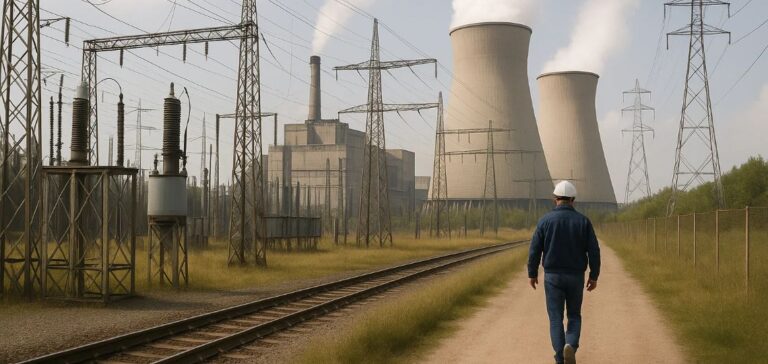Twenty federations and professional organizations from the energy sector have signed an open letter, urging lawmakers to take action to accelerate the electrification of uses in France. As the country faces growing dependence on imported fossil fuels, these stakeholders stress the need to reduce this reliance in order to preserve the country’s energy sovereignty. The cost of this dependency is significant: each day, 180 million euros are paid to cover fossil fuel consumption, amounting to more than 65 billion euros annually, according to the signatories of the letter.
Energy stakeholders call for a faster transition
Among the signatories are actors from the renewable energy sector, such as Enerplan and France Hydro Électricité, as well as representatives from the nuclear sector, notably SFEN (Société Française de l’Énergie Nucléaire) and Gifen. These organizations call for a “change of course,” particularly in the transport, industrial, and building sectors, where reliance on fossil fuels remains high.
The parliamentary debate on energy sovereignty
The French government is preparing a debate in Parliament on energy sovereignty, scheduled for April 28 in the National Assembly and May 6 in the Senate. This debate is part of the 2025-2035 multiannual energy programming (PPE), which aims to reduce the share of fossil fuels in the country’s energy consumption from 60% in 2023 to 30% by 2035.
The adoption of this PPE has been met with criticism, especially from nuclear energy supporters, who argue that too much emphasis is placed on renewable energy at the expense of nuclear power. However, the government continues to highlight the urgency of boosting investments in decarbonized technologies. The implementing decree for this programming is expected to be released by the summer, following the parliamentary debates.
Investment and recruitment challenges
The signatories of the open letter stress the importance of acting quickly to give energy sector stakeholders the visibility necessary for investment and recruitment. According to them, the key question is not which technology will produce electricity, but how this electricity, produced in France and decarbonized, can replace imported fossil fuels. They call for an end to political hesitation and for action to be taken.





















